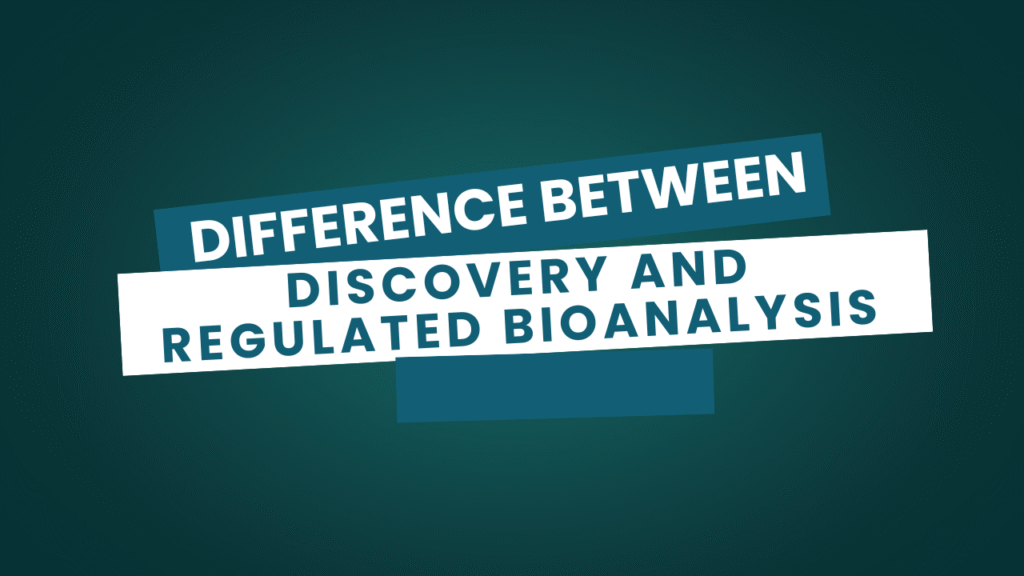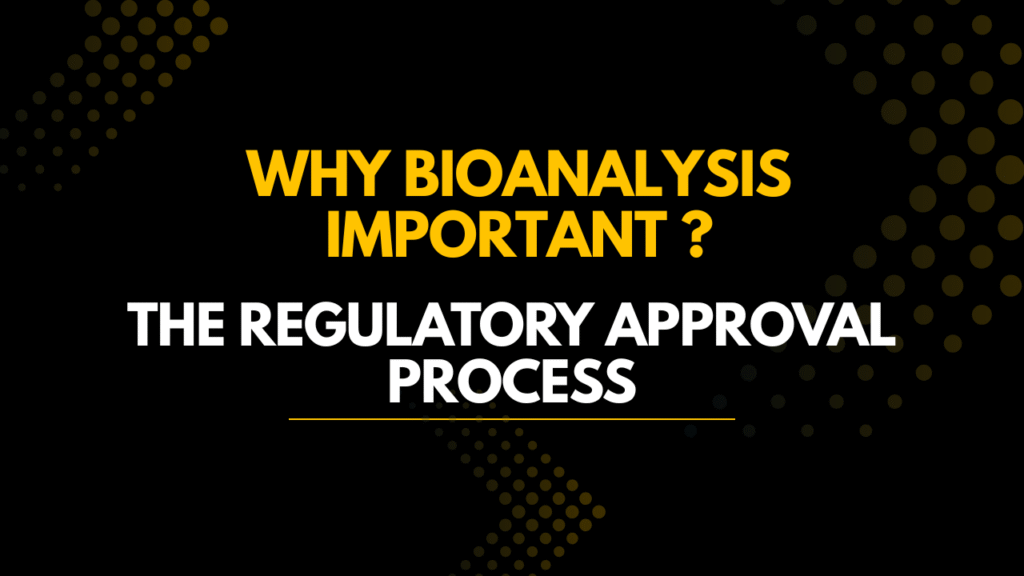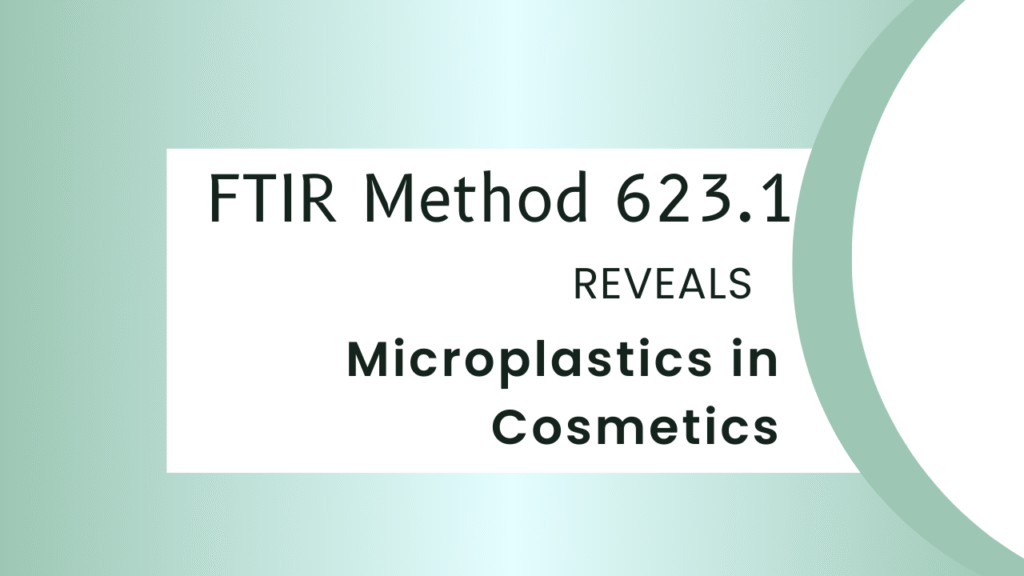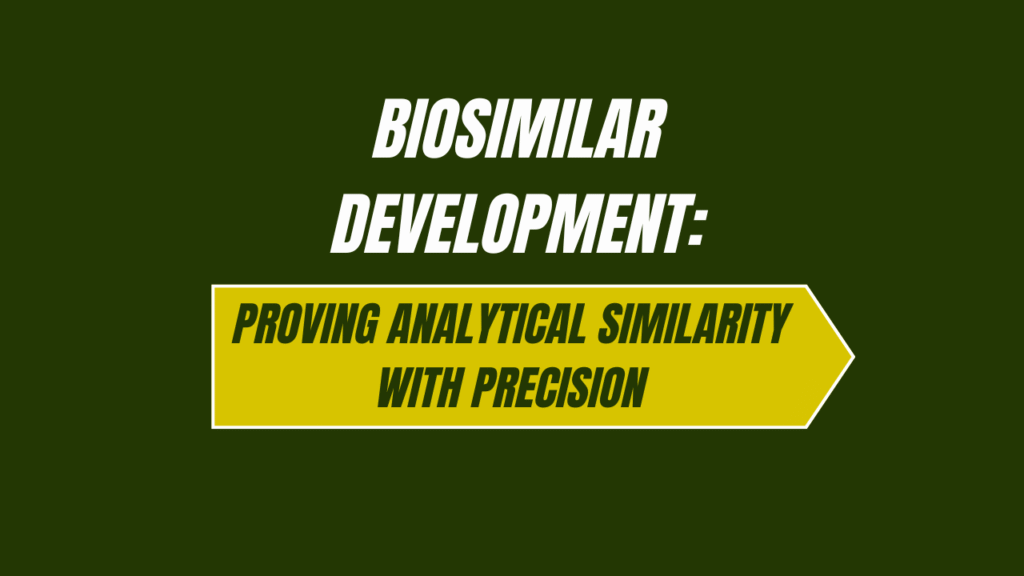Custom Polymer Synthesis
At ResolveMass Laboratories, we specialize in custom polymer synthesis tailored to your unique applications of controlled drug delivery and other material industries.
Get Started with Your Project

Applications of Custom Polyme Synthesis
Quick Enquiry
FAQ
Can LC-MS/MS be Used for Large Molecules?
Introduction LC-MS for large molecules has revolutionized the field of biopharmaceutical research and development. When…
What is the Difference Between Discovery and Regulated Bioanalysis?
Introduction The pharmaceutical industry relies on bioanalytical testing throughout the entire drug development journey, from…
Why is Bioanalysis Important in the Regulatory Approval Process?
Introduction: Why is bioanalysis important in pharmaceutical development? Bioanalysis serves as the cornerstone of drug…
Biomarker Bioanalytical Services for Drug Development: From Discovery to Late-Phase Clinical Trials
Introduction Biomarker bioanalytical services are the cornerstone of modern pharmaceutical development, enabling data-driven decisions from…
Qualitative estimation of Microplastic in cosmetics by FTIR – Method 623.1
Summary – Key Takeaways The qualitative estimation of microplastic in cosmetics by FTIR – Method…
Biosimilar Development: Proving Analytical Similarity with Precision
Introduction: The Critical Role of Biosimilar Bioanalysis in Drug Development Biosimilar bioanalysis represents the cornerstone…
ResolveMass Laboratories Inc.: Your Trusted Partner in Polymer Synthesis and Characterization
ResolveMass Laboratories Inc. is a trusted Canadian contract research organization offering a wide spectrum of specialized services spanning polymer synthesis, advanced analytical testing, and custom organic synthesis. With over a decade of experience supporting pharmaceutical, biotech, and industrial clients, we bring scientific precision and regulatory insight to every project. Our core capabilities include Polymer Synthesis and Characterization, Peptide Characterization, Organic Synthesis, Nitrosamine Testing and Analysis, PFAS Testing, and Extractable & Leachable Studies, as well as a broad suite of analytical techniques such as HPLC, GC-MS, MALDI-TOF, NMR, and FTIR.
Clients across North America trust ResolveMass for our scientific rigor, transparency, and commitment to delivering reproducible results. Partner with ResolveMass Laboratories for polymer synthesis and characterization—where innovation meets dependability.
Ready to Get Started?
📩 Contact our expert team
📞 Request a quote for method development
📅 Book a consultation with our scientists
🧪 Submit your sample for testing
Other FAQs on Polymer Synthesis
The two major polymer synthesis methods are addition (chain-growth) polymerization and condensation (step-growth) polymerization. Other methods include ring-opening polymerization and controlled/living polymerization techniques like ATRP and RAFT.
Addition polymerization: This method joins small molecules called monomers together one by one, like linking beads on a string. No by-products are formed. It’s commonly used for making plastics like polyethylene and polystyrene.
Condensation polymerization: In this method, monomers join together but also release a small molecule as a by-product, like water or methanol. It’s often used to make materials like nylon or polyester.
Polymer synthesis is the process of creating large molecules (polymers) by chemically bonding many small repeating units (monomers). It typically involves:
Choosing the right type of monomer(s)
Mixing them with a chemical that starts the reaction (initiator or catalyst)
Controlling the reaction with heat, pressure, or specific conditions
Allowing the monomers to connect into long chains
Stopping the reaction and collecting the final polymer product
In the context of polymers, the three common types of synthesis are:
Addition (chain-growth) polymerization: Monomers add one at a time to a growing chain.
Condensation (step-growth) polymerization: Monomers combine in steps, often releasing a small molecule like water.
Controlled or living polymerization: A special type of addition method that allows very precise control over the size and structure of the polymer.
Most synthetic polymers are made using addition polymerization. This process is fast, efficient, and ideal for making everyday plastics like polystyrene, polyvinyl chloride (PVC), and polypropylene.
Synthesis techniques are the different ways scientists control the polymer-making process. Some popular techniques include:
Bulk polymerization – everything happens in a single phase, usually without solvents
Solution polymerization – monomers are dissolved in a liquid to control the reaction
Suspension polymerization – monomers are suspended in water like tiny droplets
Emulsion polymerization – similar to suspension, but uses surfactants to form stable droplets (used to make latex paints and rubbers)
Polymers are made by connecting small chemical units (monomers) into long chains using heat, pressure, and/or catalysts. The method chosen depends on the type of polymer desired and its final use. Once the reaction is complete, the material is purified and processed into pellets, films, fibers, or other forms.
The most widely used techniques include:
Bulk polymerization – simplest setup, but difficult to control heat
Solution polymerization – easy heat control, used for specialty polymers
Suspension polymerization – makes bead-shaped polymers like styrene
Emulsion polymerization – great for making paints, coatings, and adhesives
Synthetic polymers come in different types depending on their properties:
Thermoplastics – can be melted and reshaped (e.g., polyethylene, acrylic)
Thermosets – once set, they cannot be remelted (e.g., epoxy, Bakelite)
Elastomers – stretchy and rubber-like (e.g., synthetic rubber)
Fibers – long thread-like polymers used in textiles (e.g., polyester, nylon)
Polymer synthesis is important because it allows scientists and engineers to create materials with precise properties. This customization helps solve problems in medicine, industry, and the environment—like making biodegradable plastics or targeted drug delivery systems.
The first step is selecting the right monomers based on the desired properties of the final polymer. This is followed by choosing a suitable polymerization method and preparing the reaction conditions.
Choose monomers – based on the desired properties
Select synthesis method – such as addition or condensation
Add initiators or catalysts – to start the reaction
Control reaction conditions – temperature, mixing, and time
Allow polymerization to occur – chains form and grow
Stop the reaction – by cooling or adding a stopping agent
Purify and process the polymer – into usable form (pellets, sheets, etc.)
Initiation – the reaction starts, and the first bond is formed
Propagation – the chain grows as more monomers add on
Termination – the chain stops growing (naturally or intentionally)
References:
- K. Madhavan Nampoothiri, Nimisha Rajendran Nair, Rojan Pappy John,, et al. “An overview of the recent developments in polylactide (PLA) research” Bioresource Technology, Volume 101, Issue 22, 2010. DOI: 10.1002/mabi.202300219
- Chen, Y., et al. “Recyclable Thermosets: A Game-Changer for Plastics.” Science Advances, 2022. DOI: 10.1126/sciadv.abn1234
- Jawaher A. Alfurhood,a Patricia R. Bachlera and Brent S. Sumerlin*a “Hyperbranched polymers via RAFT self-condensing vinyl polymerization”
Polym. Chem., 2016,7, 3361-3369. DOI: 10.1039/d2py00345c - Xin Li, Yuzhu Xiong* “Application of “Click” Chemistry in Biomedical Hydrogels” ACS Omega 2022, 7, 42, 36918–36928. https://doi.org/10.1021/acsomega.2c03931





